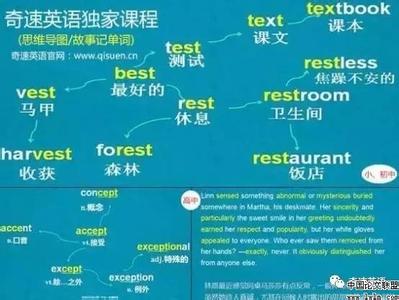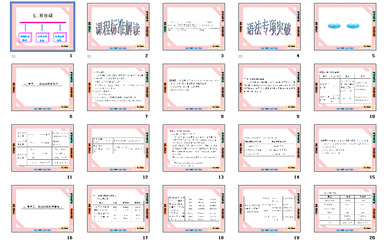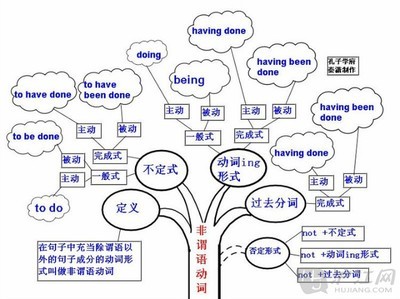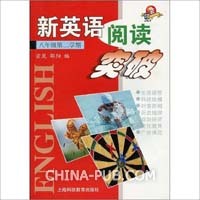在英语考试中,“句型转换”题所占分值较大,是为了全面考查学生在初中阶段所学的词汇(同义或反义)、短语、句型和语法等方面的知识及其它的之间的灵活运用能力。
一、陈述句与疑问句、祈使句、感叹句间的转换
1、陈述句中肯定句变为否定句,大部分是用not来改变谓语结构,但也有借用否定意义的词,如nothing, nobody, none, neither, little, few, never, hardly等,例如::
A:Tom does well in maths.
B:Tom doesn't do in maths.
A:He has much to do.
B:He has nothing to do.
2、改为疑问句。根据上下句的结构和词的减少,来判断变为哪一种形式的疑问句。例如:
A:My brother often has breakfast at school.
B: Does your brother often have breakfast at school?
A:Tom's already weak in English.
B:Tom's already weak in English, isn't he ?
3、改为感叹句。根据所给的句子结构和单词的词性,来确定使用哪一种感叹句的形式,例如:
A:This is an interesting book.
B:What an interesting book this is!
或 How interesting this book is!
二、同义句转换
根据上句,写出一个意思相同(或相近)的下句,此类形式繁多,内容复杂,涉及面广,归类如下:
1、同义词或词组之间的转换。(通常上下句时态保持一致)。
常见的同义词或词组有:
(1)四个“花费”(spend-take-cost-take);
(2)三个“到达”(get to-reach-arrive in/at);
(3)四个“收到…来信”(hear from-get a letter from-receive a letter from-have a letter from);
(4)两个“擅长于…”(be good at -do well in);
(5)两个“有空”(be free-have time);
(6)三个“入睡”(go to sleep-get to sleep-fall asleep);
(7)两个“玩得开心”(enjoy oneself-have a good time);
(8)“给…打电话”(call sb-telephone sb-ring sb. a call-make a telephone to sb.)
(9)“飞往…”(fly to…-go to…by air/plane)
(10)“自学”(teach oneself-learn…by oneself)
(11)在…方面帮助help…with…-help… (to)do…
(12)在…差be weak in…-do badly in…
(13)能/会…can-be able to
(14)更喜欢…like…better than…-prefer…to…
(15)充满了…be full of…-be filled with…
(16)放弃干…give up doing…-stop doing…
(17)不再… no longer-not …any longer
(18)照顾/保管 take care of…-look after
(19)展览 on show-on display
(20)阻止…干…stop…from doing-keep/prevent…from doing…
(21)由于 thanks to-because of…
(22)举手hands up-put up one's hands
(23)最后,终于at last-in the end
(24)与…不同 be different from…-be not the same as…
(25)从…借入… borrow…from…-lend…to…
(26)乘公汽/火车/的士 go to…by bus/train/taxi-take a bus /train/taxi to…
(27)乘自行车去… go to…by bike-ride a bike to…
(28)为…感到自豪 be proud of…-be the pride of…
(29)步行去… walk to…-go to…on foot
(30)独自地by oneself -alone等。
例如:
A:The children had a good time in the park.
B:The children enjoyed themselves in the park.
2、同义句型之间的转化。常见的同义句型有
①It seems that 从句→Somebody seems(to be)+adj/n
②It's kind of sb. to do…→Somebody is kind to do…
③What does…mean?→What do you mean by…? 或What's the meaning of…?
④There is something wrong with…→Something is wrong with…
⑤not…until…与when/after/before引导的时间状语从句的转换
⑥What's wrong with…?→What's the matter with…?
⑦How is…?→What's…like…?
⑧How do you like…?→What do you think of?
⑨It's said that…→People say that…
⑩Can I help you? →What can I do for you?
例如:
A:I went to bed after I finished my homework.
B:I didn't go to bed until I finished my homework.
3、if引导的条件状语从句的转化。例如:
A:If it doesn't rain tomorrow, they'll go to the park.
B:Unless it rains tomorrow, they'll go to the park.
A:If you don't hurry, you'll be late.
B:Hurry up, or you'll be late.
3、简单句与复合句之间的转换。

①含宾语从句的复合句与简单句的转换。例如:
A:I saw they were playing football on the playground.
B:I saw them playing football on the playground.
A:The teacher found that she was very clever.
B:The teacher found her very clever.
由疑问代词/副词引导的宾语从句可转化为“疑问句+不定式”结构。例如:
A:Could you tell me how I can get to the railway station?
B:Could you tell me how to get to the railway station?
A:We don't know what we should do next.
B:We don't know what to do next.
②由when/after/before/while/since/until引导的时间状语从句可转化为when/after/before/while/sine/until + doing…
例如:
A:They went home after they finished their work.
B:The went home after finishing their work.
A:Mr Smith has taught English since he came to China.
B:Mr Smith has taught English since coming to China.
When sb. +be+数词+years old→at the age of+岁数
A:When he was twelve years old, Edison started writing his own newspaper.
B:At the age of twelve, Edison started writing his own newspaper.
③由so…that…引导的结果状语从句可转化为too…to do或…enough to do……例如:
A:The box is so heavy that I can't carry it.
B:The box is too heavy for me to carry.
或:The box isn't light enough for me to carry.
A:The child is so old that he can go to school.
B:The child is old enough to go to school.
④由so that 引导的目的状语从句可转化为in order to do例如:
A:My father got up early this morning so that he could catch the early bus.
B:My father got up early this morning in order to catch the early bus.
⑤由because 引导的原因状语从句可转化为because of…例如:
A:We didn't go to the park because it rained.
B:We didn't go to the park because of the rain.
⑥定语从句可以转化为介词短语或分词短语。例如:
A:The man who is on the bike is Jim.
B:The man on the bike is Jim.
A:The man who is driving the red car is my boss.
B:The man driving the red car is my boss.
4、用并列连词neither…nor;either…or…;both…and…;not only…but also…连句。例如:
A:I haven't seen a TV play for long, and Lily hasn't either.
B:Neither I nor Lily has seen a TV play for long.
neither…nor…, either…or…和not only…but also…连接两个主语时,谓语动词依靠近它的主语而定,即“就近原则”,但是both…and用来连接两个主语时,谓语复数。
5、主动语与被动语态的互变。
“主动”变“被动”实行“三变二不变”原则。“三变”即是主语,谓语和宾语的变化,“二不变”即时态不变,句式不变。例如:
A:They make watches in the town.
B:Watches are made by them in the town.
注:使役性动词make或感观性动词see/watch/look at/hear/listen to/feel在主动语态中所带省to的不定式宾补变为被动语态时,必须加上to.
6、形容词、副词二级之间的转化,例如
A:Chinese is the most important subject of all.
B:Chinese is more important than any other subject.
(由于篇幅有限,句式转换就只能讲到这里,后面我将会继续补充!)
 爱华网
爱华网



